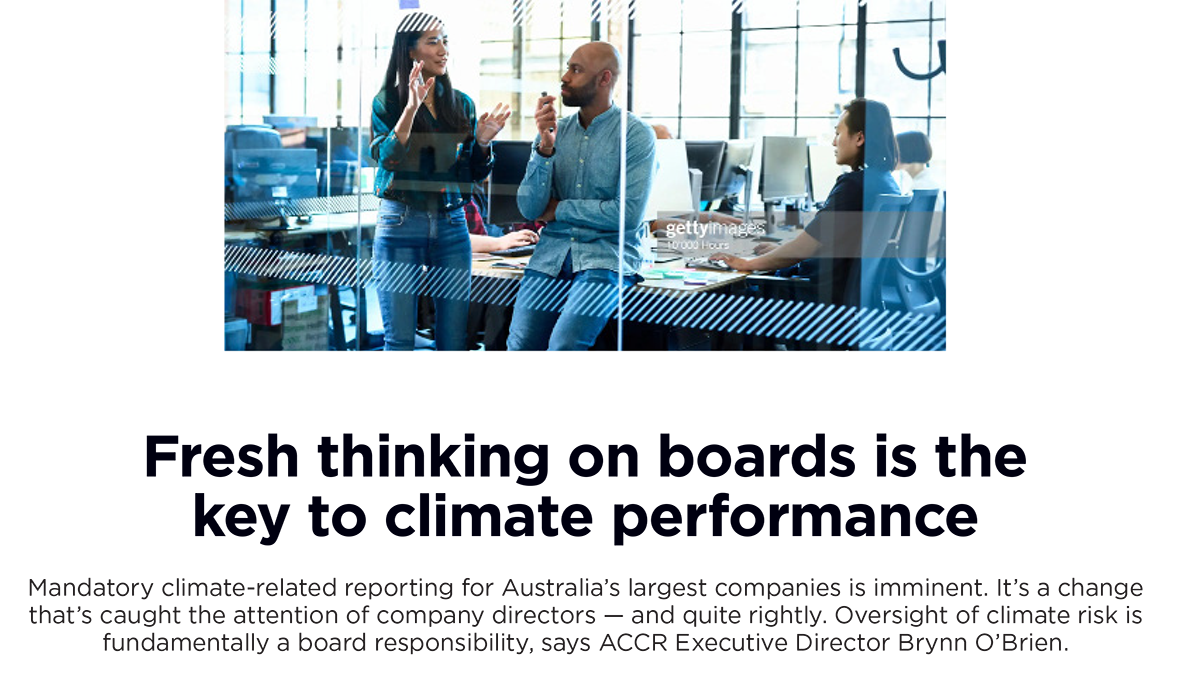Investor Insight Editorial: Fresh thinking on boards is the key to climate performance
This article by Executive Director, Brynn O’Brien, was first published in the October 2023 edition of the Australian Institute of Company Directors - Company Director Magazine.
Mandatory climate-related reporting for Australia’s largest companies is imminent. It’s a change that’s caught the attention of company directors - and quite rightly. Oversight of climate risk is fundamentally a board responsibility.
Particularly for the boards of carbon-intensive companies, governance of climate-related risk is a broad ranging and complex set of responsibilities, covering disclosure, company strategy, and capital expenditure. Boards must oversee the development and implementation of strategy aligned with climate science and market direction; they may need to oversee the acquisition and development of an alternative asset base, major restructuring, cultural change or the decommissioning of end of life assets.
While the challenges vary across sectors and companies, there are three commonalities.
First, emissions need to go down. It’s crucial that we don’t let an over-focus on a new disclosure regime distract us from the central challenge directors face: reducing real world emissions on the timeline that science and the market demands.
Second, climate-competent directors are needed around the board table today. We need directors alive to the risks, excited by the opportunities and possessing the skills to navigate the transformation.The risks to individual companies, investment portfolios and the global economy only grow as the planet warms - further delay to decarbonisation will make the task ahead of us harder.
Third, boards must demonstrate fresh-thinking. Maintaining a business-as-usual approach in the face of an overhaul of the global energy system puts shareholder value at risk. Conversely, robust climate governance that confronts the rapidly evolving landscape is linked to protecting long-term shareholder value.
Investors want boards to step up. Some of the world’s biggest investors, like the sovereign wealth fund of Norway, Norges Bank Investment Management, NBIM, have said they will vote against directors if climate strategy is not credible. Closer to home, the Australian Council of Superannuation Investors (ACSI) has said it will recommend against directors where a company “consistently fall(s) short of our expectations” across a range of climate-related indicators.
The renewal of the AGL board last year was a powerful signal that, in the face of stagnation, investors are prepared to back fresh candidates. At Woodside this year, one incumbent director faced a 35% “no” vote. For both those companies, climate strategy and performance, not disclosure, were the underlying issues. The real challenge is reducing emissions, the prize is our shared future, and disclosure is just one of many tools to keep us on track.
